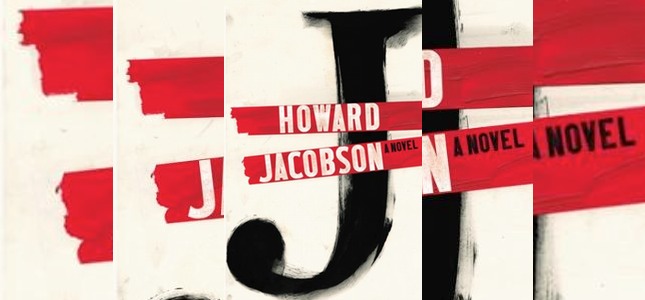
The novel has been compared to 1984, and there are some minor similarities in that they’re both set in a dystopian future in the aftermath of an atrocity, but where George Orwell’s classic succeeds in presenting a couple that do all they can to rail against the might of an impossible regime, J gives us a whole lot of defeated resignation. While Winston and Julia are ultimately unsuccessful at the end of 1984, the very fact that they tried to do things their own way is inspiring, but Kevern’s bitter reverse psychology defeat and Ailin’s convinced complicit duplicity are a lot less rousing.
Released on hardback on the 14th August 2014, the novel managed to make it into the Booker Prize longlist before it had even hit the shelves. It was later nominated as one of the 2014 Booker Prize shortlist novels, confirming the critical regard the book had picked up in the wake of its release. It missed out on winning the prize, which went to Richard Flanagan’s The Narrow Road To The Deep North, but was also added to John Sutherland’s top ten list of all-time unreadable novels, an accolade that we can’t help but agree with, despite Jacobson’s incredible sentence construction and writing skill.
The storyline for the book is slow, stilted and sort of uneventful, standing in stark contrast to the sheer magnitude of the subject matter that has gone into its formation. It’s not so much that nothing happens as such, it’s just that when it does it’s coated in a muting film, which you’ve sort of got to assume is intentional based on certain sections of the book. There appears to be an attempt to make the shocking mundane, hum drum and generally every day, which makes for an incredibly insightful way of looking at the atrocities of genocide, but not so much a great read.
One thing you can’t argue with is that the events of the books, including the long past “WHAT HAPPENED, IF IT HAPPENED”, are plausible. For anyone that thinks it could never happen to us, or it could never happen here, the reality is that it absolutely could and that it wasn’t so long ago that it did. Antisemitism and racial prejudice have had significant contributors in the UK, Nazi Germany did all that it could to eradicate the Jewish race, the Americans enslaved their African emigres and very nearly wiped out the native populace, while more recently the 1992 racial cleansing in Bosnia and the organised campaign of atrocities, violence and murder in Rawanda shows that the worse elements of human nature aren’t always as far away as we might imagine.
The book has been criticised by some for being implausible, as reviews have argued that the story of post-pogrom crazed Britain in the not so distant future are just not believable, but in their writing they only show a narrow-minded, imagination deficient understanding of the text. Taken literally and within a continuation of the present day timeline the story is indeed hard to believe, but if you change things around in your mind, re-order the history of the 20th and 21st centuries then it is far from unfathomable.
It would be difficult to give J by Howard Jacobson a high scoring book review, because it’s just not an enjoyable novel to read. However, it is very well written, with some impressive lines, a fair few words you’ll need your trusty thesaurus for and a unique stance on the realities of the darker side of humanity. It’s a solid critique of the past, brutal assessment of our present world and a reiterated warning about the future of human society, making it an important novel to read, nonetheless.
J by Howard Jacobson review: 3/5


